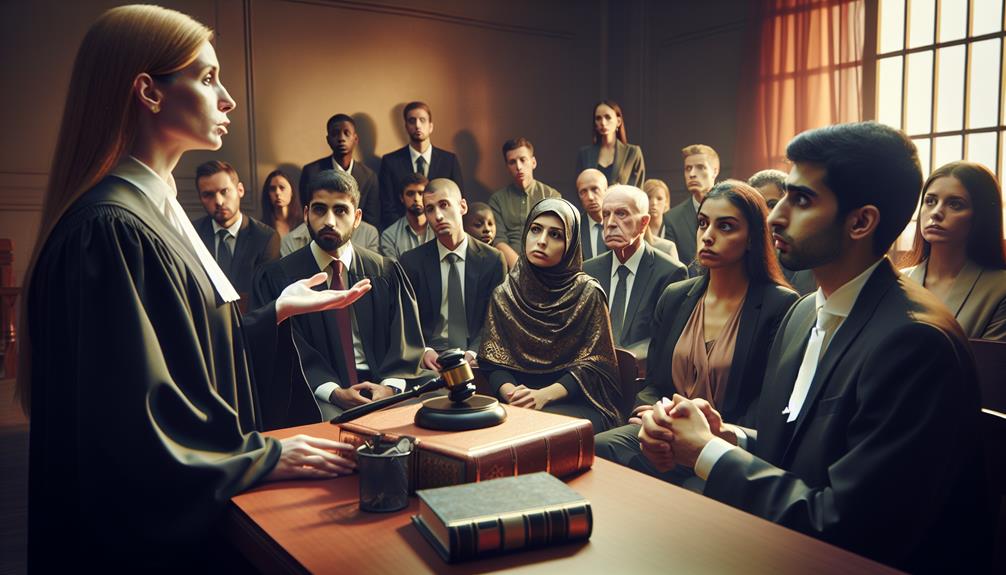The Legal Process for Personal Injury Claims
When you consider pursuing a personal injury claim, it’s important to understand that the legal Process isn’t merely a formality; it’s a structured sequence of strategic steps designed to substantiate your case. From meticulously gathering evidence to maneuvering through the complexities of court filings and potential settlements, every decision can greatly impact your outcome. Consulting with an experienced attorney is essential, yet many overlook important elements that could bolster their claims. What strategies should you employ to enhance your chances of success, and where might common pitfalls lie?

Understanding Personal Injury Claims
understanding personal injury claims is crucial, as maneuvering through the complexities of legal processes can greatly impact your ability to secure fair compensation. When you’ve suffered an injury due to someone else’s negligence, grasping the nuances of these claims can considerably influence your outcome.
You’ll need to identify the type of claim you’re pursuing, whether it’s for medical malpractice, car accidents, or slip-and-fall incidents. Each category has its own set of rules and standards of proof. Additionally, understanding liability is critical; you must demonstrate how the other party’s actions directly contributed to your injury.
Moreover, it’s essential to document your case meticulously. Gathering evidence, such as medical records, witness statements, and photographs, can substantiate your claims and bolster your position during negotiations or litigation.
Additionally, be mindful of the statute of limitations, as each state has specific deadlines for filing personal injury claims. Missing these windows can forfeit your right to seek compensation.
Steps in the Legal Process
Steering the steps in the legal process for personal injury claims requires a strategic approach, as each phase greatly impacts your case’s trajectory and potential outcome.
Initially, you’ll want to gather all pertinent evidence, including medical records, accident reports, and witness statements. This foundational work lays the groundwork for your claim.
Next, consider consulting with a personal injury attorney. Their expertise can provide invaluable insights and guidance through the complexities of legal terminology and procedures.
Once you’ve established representation, you’ll move into the filing phase, where your attorney will draft and submit a formal complaint to the court.
After filing, the discovery phase begins, allowing both parties to exchange evidence and information. This stage is critical, as it helps you assess the strengths and weaknesses of your case.
Following discovery, mediation may occur, where a neutral third party facilitates negotiations between you and the opposing party.
If a settlement isn’t reached, your case may proceed to trial. Here, you’ll present your evidence before a judge or jury, who’ll ultimately determine the outcome.
Each step requires your attention and diligence, greatly influencing your chances of a favorable resolution.
Tips for Successful Claims
To maximize your chances of a successful personal injury claim, it’s vital to meticulously document every detail surrounding your case, as this evidence becomes the backbone of your argument. Start by gathering medical records, photographs, and witness statements. These elements not only substantiate your claim but also enhance its credibility in the eyes of insurers or juries.
Next, adhere to all medical advice and attend follow-up appointments. This illustrates diligence in your recovery and helps establish a clear link between the injury and its impact on your life. Furthermore, maintain a detailed journal of your experiences, noting pain levels, emotional struggles, and daily limitations. This personal account can be compelling evidence of your suffering.
Don’t underestimate the importance of legal representation. A seasoned attorney can navigate complex legal frameworks, negotiate effectively with insurance companies, and make sure you receive fair compensation. Additionally, be wary of premature settlements; they often fall short of covering future expenses.
Navigating the Legal Process with Confidence
Understanding the legal process for personal injury claims is crucial for achieving a successful outcome. Having a knowledgeable personal injury lawyer by your side can make all the difference in navigating this complex process, from filing your claim to negotiating settlements and representing you in court. For a more detailed discussion on each step of the legal process and how a lawyer can assist you, we invite you to read our detailed article at Personal Injury Lawyer. This resource will provide valuable insights and help you feel more confident and prepared throughout your legal journey.